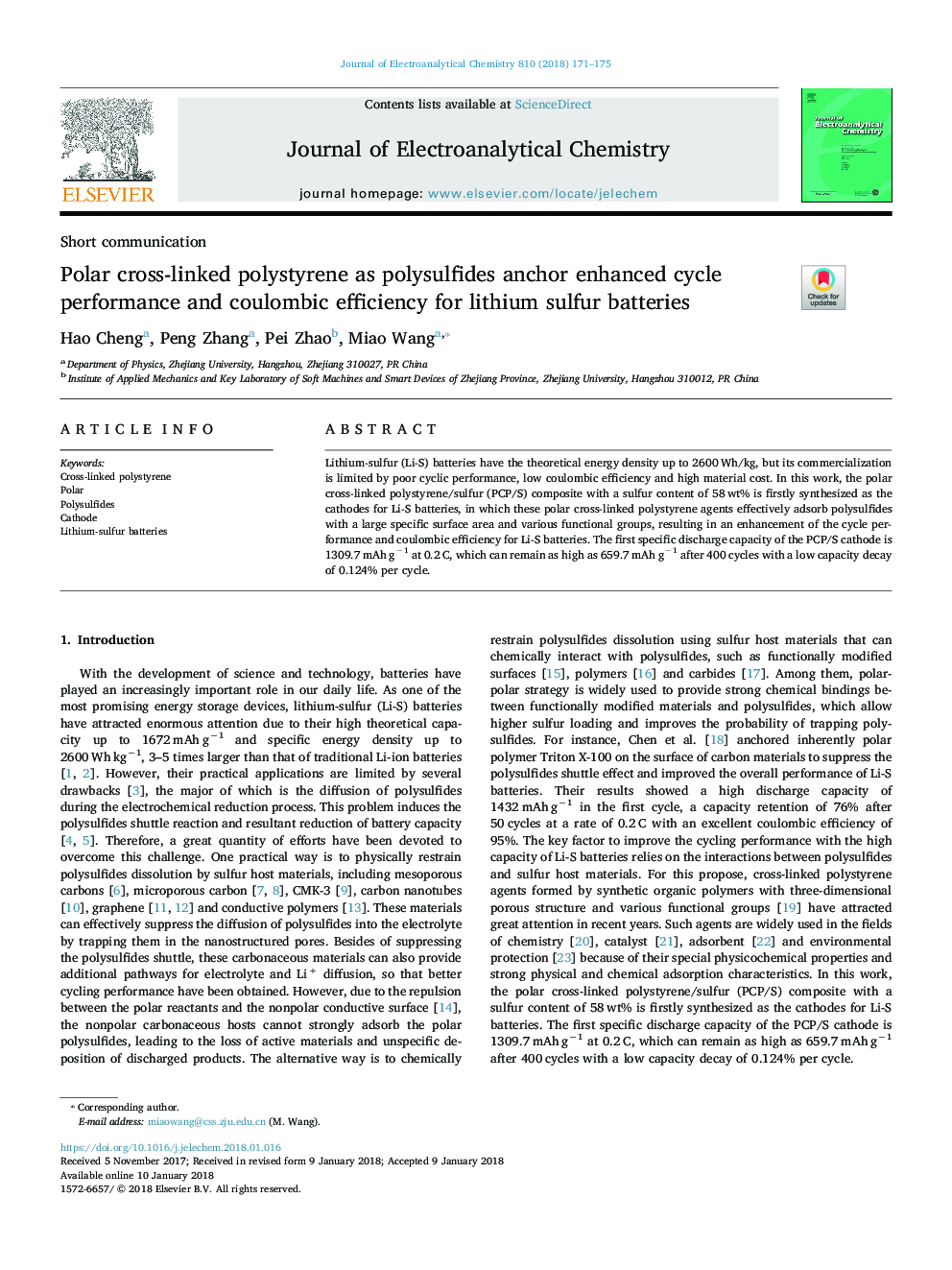| Article ID | Journal | Published Year | Pages | File Type |
|---|---|---|---|---|
| 6662157 | Journal of Electroanalytical Chemistry | 2018 | 5 Pages |
Abstract
Lithium-sulfur (Li-S) batteries have the theoretical energy density up to 2600â¯Wh/kg, but its commercialization is limited by poor cyclic performance, low coulombic efficiency and high material cost. In this work, the polar cross-linked polystyrene/sulfur (PCP/S) composite with a sulfur content of 58â¯wt% is firstly synthesized as the cathodes for Li-S batteries, in which these polar cross-linked polystyrene agents effectively adsorb polysulfides with a large specific surface area and various functional groups, resulting in an enhancement of the cycle performance and coulombic efficiency for Li-S batteries. The first specific discharge capacity of the PCP/S cathode is 1309.7â¯mAhâ¯gâ1 at 0.2â¯C, which can remain as high as 659.7â¯mAhâ¯gâ1 after 400â¯cycles with a low capacity decay of 0.124% per cycle.
Related Topics
Physical Sciences and Engineering
Chemical Engineering
Chemical Engineering (General)
Authors
Hao Cheng, Peng Zhang, Pei Zhao, Miao Wang,
